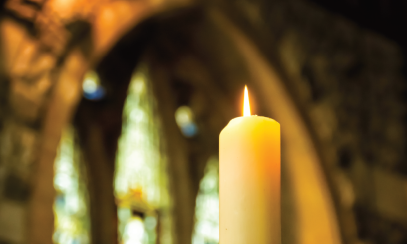Dear Fr. Joe: Who wrote the Bible?
Well, lots of folks! The guide behind the whole thing is the Holy Spirit, of course, but let’s take a look at how the Spirit brought the Bible about.
There has been a lot of discussion about this, particularly after the publication of the book The DaVinci Code (you can buy it in the fiction section of your bookstore), which claimed that the Emperor Constantine put the Bible together and selected which books went in and which didn’t.
The first thing to remember is that the Bible is technically not just a book, but a collection of books written over a 2,000-year period. God spoke through rabbis and religious leaders before Christ and through the bishops and popes after. The Holy Spirit spoke to them and helped them select those writings that were divinely inspired.
When you look at the New Testament, you see that, right away, our earliest leaders were noticing that some books were divinely inspired. Peter wrote that Paul’s writings were Scripture in II Peter 3:15 and 16 and Paul considered Luke’s writings the same way (I Timothy 5:18), as shown when he quotes from the Old Testament and the Gospel of Luke together – thereby giving them the same weight.
Now, beyond that, we get into the first generation of Christianity and see that many of our church fathers were working hard to name which books were legitimate Scripture. I took these notes in class at seminary and can’t remember whose class it was – I apologize for the lack of citation:
Clement of Rome (95 A.D.) mentioned eight New Testament books. Ignatius of Antioch (A.D. 115) acknowledged seven books. Polycarp (A.D. 108), who sat at John the Apostle’s feet, promoted 15 books. Irenaeus mentioned 21 books (A.D. 185). Hippolytus recognized 22 books (A.D. 170-235).
Beyond all this, church councils made the decisions about the rest. Despite Dan Brown’s fanciful musings, I don’t think the Council of Nicea made any decisions about what books were admitted to the canons and which ones weren’t. (Any readers want to help me with that?)
The councils that did were these: Hippo (sounds like a council I could be at) in 393 and Carthage in 397. They used the following questions to decide which books were Scripture:
1. Was the author an apostle, or someone with a close connection to an apostle?
2. Do (did) the people of God accept the writings as inspired?
3. Was the book consistent in doctrine and orthodoxy?
4. Did the book bear the signs of the morals and spirituality that were evidence of divine inspiration?
So, inspired by the Holy Spirit, the leaders of our church, whom God chose, put the Bible together. We enjoy the fruits of their labor today and should thank the Lord every day for that.
Enjoy another day in God’s presence!



